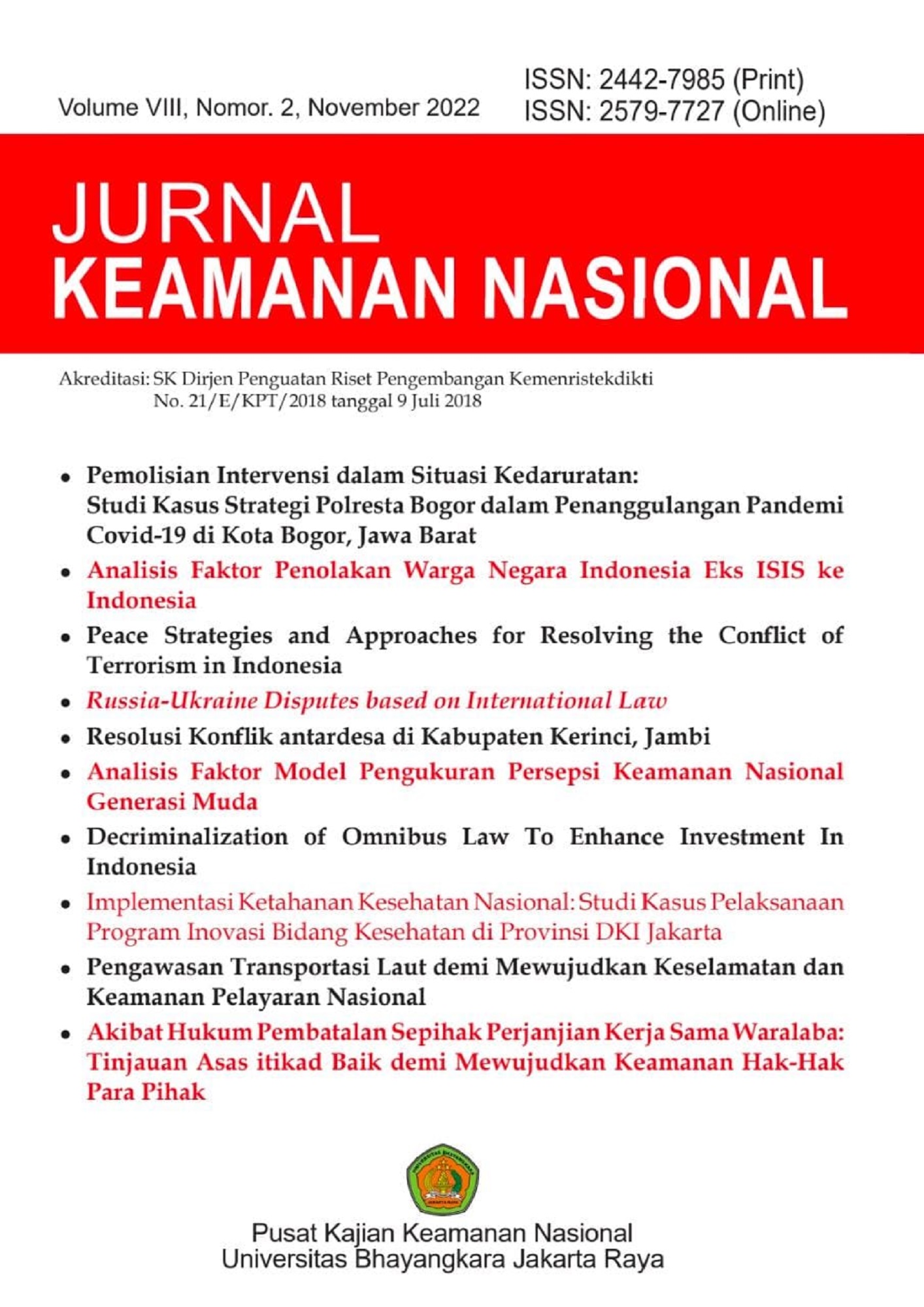Akibat Hukum Pembatalan Sepihak Perjanjian Kerja Sama Waralaba: Tinjauan Asas itikad Baik demi Mewujudkan Keamanan Hak-Hak Para Pihak Legal Consequences of Unilateral Cancellation of
DOI:
https://doi.org/10.31599/b6e0e729Keywords:
Unilateral Cancellation; Agreement; Indonesian LawAbstract
The agreement begins with the agreement of the parties who made it, and fulfills the legal requirements of Article 1320 of the Civil Code agreement. The agreement made will give rise to rights and obligations for the parties who made it, but what if the agreement made is canceled unilaterally, this will certainly
cause losses for the other party. According to Article 1338 paragraph 1 the agreement made must be based on good faith, meaning that the agreement is not enough only to fulfill the elements of the legal requirements of the agreement but to become the most important unit in implementing the contents of the agreement by upholding the principle of good faith of the parties making it, From some of the data presented, several legal cases and considerations of the panel of judges will be analyzed. The theory of legal certainty and the theory of justice are used to analyze the normative legal research method with a
case approach is used in this study. To find out what the legal consequences are for the unilateral cancellation of agreements that have been agreed upon by the parties and the discussion in this case it is important to know legal certainty and justice for the parties in order to create a sense of security in society when making agreements.
Downloads

Downloads
Published
Issue
Section
License
Please read and understand the copyright terms for submissions to this journal.
Copyright Notice
The Jurnal Keamanan Nasional is under the Creative Commons Attribution 4.0 International (CC-BY 4.0) License, according to which:
1) Authors retain copyright and grant the journal the right to first publication, with the work simultaneously licensed under the Creative Commons Attribution (CC-BY 4.0) that allows the sharing of articles published with the acknowledgement of authorship and the initial publication in this journal.
2) The authors are authorized to make additional contracts separately for distribution of the version of the work published in this journal (for example, publication in an institutional repository or as a chapter of the book), as long as there is recognition of authorship and initial publication in this journal.
3) Authors are authorized and encouraged to publish and distribute their work online (for example, in institutional repositories or on their personal pages) at any time before or during the editorial process, as it increases the impact and reference of the published work.












